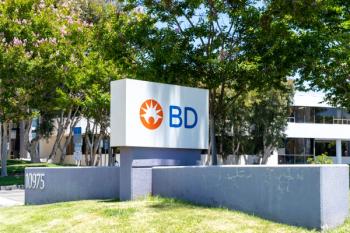
Metabolomics May Have Role to Play in Diagnosing Infection
Katja Dettmer-Wilde and her team presented their findings at the 2023 HPLC conference in Germany.
Antimicrobial resistance presents an urgent public health issue – and it’s one for which scientists are actively seeking answers.
During a presentation at this year’s HPLC conference in Düsseldorf Germany, Katja Dettmer-Wilde from the Institute of Functional Genomics at the University of Regensburg, presented data that suggest metabolites could show promise in helping to diagnose, and perhaps consequently fight, infections.
“There are many metabolites produced by the immune cells that have antimicrobial properties,” she said. “They can impact the growth and persistence of bacteria.”
It is estimated that at least 1.27 million people die worldwide because of antibiotic resistant infections, according to the
“The resistance to antibiotics increases constantly,” Dettmer-Wilde said during the presentation. “Even if you design new antibiotics, microbes will develop in the system.”
Dettmer-Wilde and her team infected bone-marrow derived macrophages with Salmonella Typhimurium, Klebsiella pneumoniae, and Escherichia coli. The researchers also analyzed macrophages stimulated with proinflammatory cytokines.
Dettmer-Wilde and her team used a zero-sum logistic regression to analyze untargeted metabolomics data, allowing them to discern between infected and non-infected cells. Then they built a second signature to determine the difference between infected cells and cells exposed to sterile inflammatory stimuli and uninfected controls.
Mass spectrometry in combination with another separation technique “is widely used in targeted and untargeted metabolomics because it offers low limits of detection and the ability to identify metabolites,” according to the abstract from the presentation.
“We measured the samples with LC-MS and of course GC for small quantities,” she added.
The researchers concluded that host metabolism could potentially be employed to diagnose infections.
Reference
Dettmer, K.; Fadil, F.; Buck, L.; Schatz, V.; Holoborodko, B.; Oßner, T.; Heckscher, S.; Weigert, A.; Krampert, L.; Oefner, P.; Spang, R.; Jantsch, J.; Metabolomics to study antimicrobial defense. In Book of Abstracts, 2023 HPLC Symposium, Düsseldorf, Germany.
Newsletter
Join the global community of analytical scientists who trust LCGC for insights on the latest techniques, trends, and expert solutions in chromatography.




